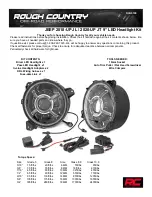
•
Safety
experts
recommend
that
children
ride
rearward-facing in the vehicle until they are at least
one year old and weigh at least 20 lbs (9 kg). Two types
of child restraints can be used rearward-facing: infant
carriers and
⬙
convertible
⬙
child seats. Both types of
child restraints are held in the vehicle by the lap/
shoulder belt or the LATCH child restraint anchorage
system. Refer to “Lower Anchors and Tether for CHil-
dren (LATCH)” later in this section.
•
The infant carrier is only used rearward-facing in the
vehicle. It is recommended for children who weigh up
to about 20 lbs (9 kg).
⬙
Convertible
⬙
child seats can be
used either rearward-facing or forward-facing in the
vehicle. Convertible child seats often have a higher
weight limit in the rearward-facing direction than
infant carriers do, so they can be used rearward-facing
by children who weigh more than 20 lbs (9 kg) but are
less than one year old.
•
Rearward-facing child seats must
NEVER
be used in
the front seat of a vehicle with a front passenger
airbag. An airbag deployment could cause severe
injury or death to infants in this position.
Older Children and Child Restraints
Children who weigh more than 20 lbs (9 kg) and who are
older than one year can ride forward-facing in the
vehicle. Forward-facing child seats and convertible child
seats used in the forward-facing direction are for children
who weigh 20 to 40 lbs (9 to 18 kg) and who are older
than one year. These child seats are also held in the
vehicle by the lap/shoulder belt or the LATCH child
restraint anchorage system. Refer to “Lower Anchors and
Tether for CHildren (LATCH)” later in this section.
The belt-positioning booster seat is for children weighing
more than 40 lbs (18 kg), but who are still too small to fit
the vehicle’s seat belts properly. If the child can not sit
with knees bent over the vehicles seat cushion while the
76
THINGS TO KNOW BEFORE STARTING YOUR VEHICLE
Summary of Contents for 2007 RS Caravan
Page 2: ......
Page 5: ...INTRODUCTION 5 1...
Page 8: ......
Page 120: ...120 UNDERSTANDING THE FEATURES OF YOUR VEHICLE...
Page 121: ...UNDERSTANDING THE FEATURES OF YOUR VEHICLE 121 3...
Page 122: ...122 UNDERSTANDING THE FEATURES OF YOUR VEHICLE...
Page 202: ......
Page 208: ...INSTRUMENT PANELS AND CONTROLS 208 UNDERSTANDING YOUR INSTRUMENT PANEL...
Page 209: ...BASE INSTRUMENT CLUSTER UNDERSTANDING YOUR INSTRUMENT PANEL 209 4...
Page 210: ...INSTRUMENT CLUSTER WITH TACH 210 UNDERSTANDING YOUR INSTRUMENT PANEL...
Page 306: ......
Page 335: ...STARTING AND OPERATING 335 5...
Page 393: ...Jack Engagement Locations WHAT TO DO IN EMERGENCIES 393 6...
Page 402: ...Jack Engagement Locations 402 WHAT TO DO IN EMERGENCIES...
Page 414: ...2 4L ENGINE Engine Compartment 2 4L Engine 414 MAINTAINING YOUR VEHICLE...
Page 415: ...3 3L 3 8L ENGINES Engine Compartment 3 3L 3 8L Engines MAINTAINING YOUR VEHICLE 415 7...
Page 464: ......
Page 484: ......
Page 494: ......
Page 495: ...INDEX 10...
Page 515: ...NOTES...
Page 516: ...NOTES...
Page 517: ...NOTES...
Page 518: ...NOTES...
Page 519: ...NOTES...
Page 520: ...NOTES...
















































